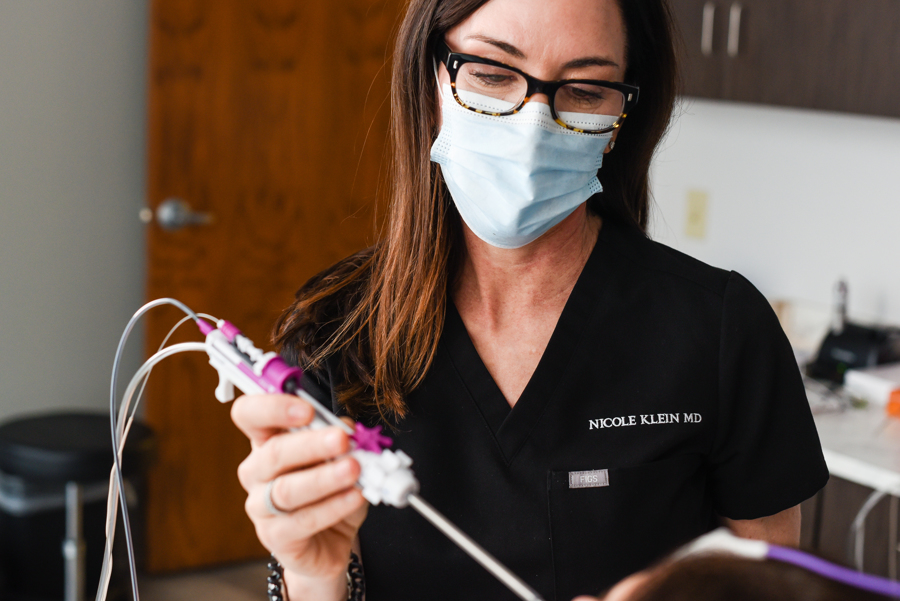In the United States, 14% of adults and 13% of children have been diagnosed by a physician with allergic rhinitis, or environmental allergies. Symptoms–which are often induced by dust mites, seasonal pollen, or animal dander–include cough, nasal congestion, runny nose, sneezing, and itching. These symptoms affect sleep, daily activities, mood, and overall quality of life. If the pollen count has you pleading for a remedy, there are several ways to combat the symptoms of seasonal allergies.
Over the Counter Heroes
Antihistamines are anti-inflammatory medications that can be taken every day as a pill. Medications like Claritin, Zyrtec, and Allegra are recommended because they have fewer side effects than first-generation antihistamines like Benadryl, which is often associated with drowsiness. These medications are best taken at night and can be taken continuously or on an as-needed basis.
Nasal steroid sprays, like Flonase, are the most effective treatment for seasonal allergy-related nose and eye symptoms. These medications reduce the body’s inflammatory response to environmental allergens, eliminating the reaction at the source. Although it may take a few days to notice a reduction in symptoms, continuous daily use of a nasal steroid spray improves quality of life in patients troubled by congestion, runny nose, itching, and sneezing caused by seasonal allergies.
Nasal saline rinses, like the NeilMed sinus rinse system, flush away particles that cause allergic reactions in the upper respiratory tract and help to clear the nasal passages. Nasal sinus irrigation can be performed before using Flonase for a one-two punch.
Soothe Sinus Pain & Congestion
Nasal decongestants that can be taken orally, like Sudafed, are available behind the counter at the pharmacy. Sudafed is effective as a nasal decongestant, but has more side effects than medications administered directly into the nose as a spray. It should be used with caution in patients who have medical conditions like high blood pressure, heart problems, neurologic or eye issues, bladder disorders, or in patients taking certain medications.
Nasal decongestant sprays–Afrin, for example–reduce swelling of the lining in the nose, decreasing congestion, and improving air passage, but do not temper the body’s reaction to the allergen like a steroid or antihistamine. Nasal decongestant sprays provide fast-acting, short-term relief of symptoms, but if these medications are over-used, they become less effective, and when stopped can even cause rebound congestion. I do not recommend using these medications for more than 3 days in a row.
Itching for Relief?
Topical antihistamine eye drops can also be used for patients troubled by itchy or watery eyes during allergy season. Over-the-counter options include Pataday or Zatidor.
Many sinus and allergy relief medications can be purchased without a prescription at your local pharmacy, but consultation with a physician provides an individualized plan to best treat your specific concerns. When we meet, I may recommend a combination of therapies or other treatment to control your symptoms and improve your quality of life during allergy season.
If allergy management is an ongoing issue for you, consider a consultation to identify the best plan of care. Call (317) 708-6984 or request an appointment online today.
This information is not intended to be medical advice.
FURTHER READING:
Dykewicz MS, Wallace DV, Amrol DJ, et al. Rhinitis 2020: A practice parameter update. J Allergy Clin Immunol. 2020 Oct;146(4):721-767. doi: 10.1016/j.jaci.2020.07.007. Epub 2020 Jul 22. PMID: 32707227.
Seidman MD, Gurgel RK, Lin SY, et al; Guideline Otolaryngology Development Group. AAO-HNSF. Clinical practice guideline: Allergic rhinitis. Otolaryngol Head Neck Surg. 2015 Feb;152(1 Suppl):S1-43. doi: 10.1177/0194599814561600. PMID: 25644617.
Succar EF, Turner JH, Chandra RK. Nasal saline irrigation: a clinical update. Int Forum Allergy Rhinol. 2019 May;9(S1):S4-S8. doi: 10.1002/alr.22330. PMID: 31087631.
La Rosa M, Lionetti E, Reibaldi M, et al. Allergic conjunctivitis: a comprehensive review of the literature. Ital J Pediatr. 2013;39:18. Published 2013 Mar 14. doi:10.1186/1824-7288-39-18
SERVICE SPOTLIGHT: The Thread Lift and Facial Threading Explained
A thread lift is an in-office, minimally invasive procedure that you can have performed on a Friday, and by Monday expect to see a lifted and refreshed appearance, hence the nickname popularized by the media, “lunch break lift.” You may also hear it referred to as...
Minimizing Acid Reflux with Diet and Lifestyle Changes
Most of us, and especially those of us who have experienced pregnancy, are familiar with the uncomfortable sensation of heartburn. Heartburn is very common; around 40% of Americans complain of heartburn symptoms. That full, burning sensation at the top of your abdomen...
Skin Resurfacing: Energy and Chemical Based Treatments
Over the past few months on the blog, current technologies in skin rejuvenation to restore and maintain youthful, radiant skin have been highlighted including, noninvasive modalities (topical products, no downtime) and a spectrum of minimally invasive procedures...




